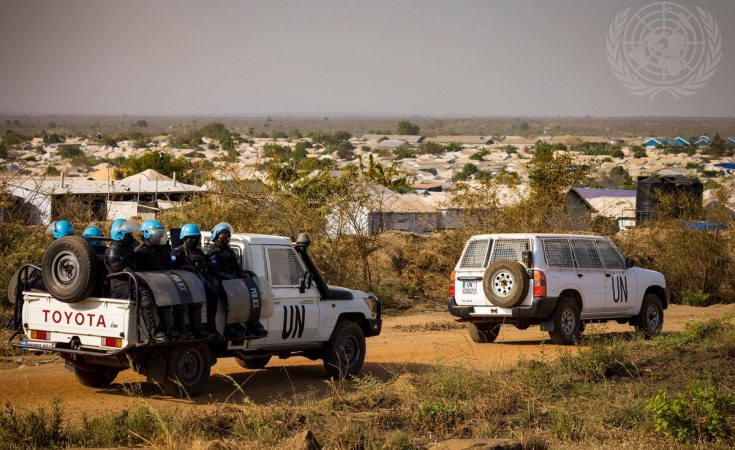HRW Statement - Item 2 Enhanced Interactive Dialogue with the Commission on Human Rights in South Sudan - HRC52
Mr. President,
We thank the Commission and the High Commissioner for their updates. The Commission's latest report makes clear the continued relevance and importance of their mandate, as the grave violations and impunity that led to its establishment by this Council, by consensus, continue.
While we welcome continued access to the country for the Commission, space for national actors to engage on these issues continues to shrink. The authorities harass, arrest and detain critics, members of civil society and opposition parties, using trumped up charges and malicious prosecutions to silence them. South Sudan has not released or presented in court four journalists with the state broadcaster, South Sudan Broadcasting Corporation, detained by the National Security Service in January.
The Commission report states, "the Government's fear of public debate and its intolerance of criticism is deep-seated." Civic space is however essential to ending the political and human rights crisis.
Impunity continues to fuel grave violations and creates an environment of fear for communities who have faced repeated violence since war broke out in 2013.
No one has been held to account for the killings, sexual violence, abductions, and massive destruction of civilian property, committed in Leer, Unity state by government officials alongside allied militias.
A survivor of the Leer violence told Human Rights Watch researchers in July, "No one has punished the [perpetrators]. They can come back anytime. Who can stop them?"
Mr. President,
It is the responsibility of the international community to do all they can to stop them.
The agreed-to Hybrid Court for South Sudan could be key to end cycles of abuse without consequence and bring communities some redress. South Sudan and the African Union should at last move the paralyzed process to establish the court forward.
At present, the Commission is the only entity contributing to laying the groundwork for accountability along with documenting the abuses. While capacity building and technical assistance are important, where political will to deliver on accountability remains elusive, they are by no means sufficient.
We urge all Council members to support renewal of the Commission's mandate and for South Sudan to deepen its cooperation with the Commission including through implementation of recommendations.
Thank you.


